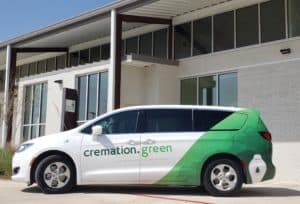Environmental impact is a pertinent concern. With the global climate crisis worsening, many people are in constant search of cost-effective green lifestyle hacks that reduce their carbon footprint and relieve future generations of harmful impacts.
If you are an environmentally conscious human being, why should your death be any different?
There are a few eco-friendly burial options, such as human composting, that may or may not be legal or available in your state.
Water cremation, scientifically known as alkaline hydrolysis, is an increasingly popular alternative to traditional burials and cremations.
Read on to discover the positive impacts of this method.
1. Water Cremation Uses No Fossil Fuels
Traditional cremation is a process where the body is burned at 1,400-1,800 degrees Fahrenheit for 2-3 hours. The flame is typically sourced from propane or natural gas, and the rapid oxidization process results in harmful emissions into the atmosphere.
Those incredibly hot flames will also vaporize any dental amalgam containing Mercury, thus releasing more toxic fumes into the air.
What is water cremation and how is it does it work without using fuel?
Water or bio-cremation uses no fossil fuels and emits no toxic fumes. The body is oxidized in a pressurized steel container with a 95 percent water and 5 percent Potassium Hydroxide/Alkali solution. The water temperature reaches 302 degrees Fahrenheit.
The results of traditional cremation and water cremation are similar. The body is reduced to ash. The difference is, the bio-cremation process used significantly less energy.
2. Carbon Dioxide Reduction
Consider a cemetery and the rows of gravestones and markers that roll over the hills and disappear into the horizon. Then consider there are 144,847 graveyards and cemeteries contained within the continental United States alone.
Then consider how much wood, and how many other natural resources were used to craft all of those caskets.
Finally, consider all of the land cleared and used for traditional cemetery burials. One thing is for sure, everyone who is living will die, and with the United States population ballooning over 325 million, the size of those cemeteries will continue to grow.
Basic science tells us that the presence of wooded areas helps reduce the amount of harmful Carbon Dioxide in our atmosphere. A switch to water-based cremation from traditional casket burial will help reduce our reliance on lumber and other resources.
3. It’s a Form of Recycling
While green cremation is considered an environmentally less harmful process thanks to the care taken by the crematorium to use as little fossil fuel as possible, water cremation is infinitely friendly.
Water cremation is an environmentally healthy process not only because if its lack of fuel usage or contribution to deforestation, but because of what the process leaves behind.
After any cremation using water is finished, the water solution used contains amino acids, sugar, and peptides. The resulting by-product is then filtered through a municipal water treatment plant and reused.
The non-toxic remains, as all dental amalgam and/or pacemakers have been removed, can easily be returned to the earth with no harmful impact should you and your family choose to scatter the ashes.
4. The Process Is Fast
Did you know that after a traditional burial, the body decomposes for up to 25 years?
Yes, returning the body directly to the earth without any human interference other than digging a grave is a natural, earth-friendly process on its own, but we don’t do that, and given the amount of land usage and decomposition time, we don’t want to.
Some other popular environmentally sound burials, like human composting, can take 30 days for soft-tissue to decompose and another three months for the bones. Complicating matters still, human composting is not a universally legal burial process.
The water-based cremation process is just as fast as traditional cremation and significantly faster than other eco-friendly processes like the aforementioned human composting or mushroom suit burials.
After submersion in the pressurized tank, the body is reduced to ash in two to three hours.
5. Water Cremation Is Cost-Effective
Depending on the particulars chosen for the process, a traditional burial can cost, on average, up to 9,000 dollars or even more.
The contributing factors of that steep price are the cost of the casket, the gravestone or marker, the transportation required of a traditional funeral, the labor fees the cemetery charges for burial, the embalming, and so on.
That price can skyrocket even higher depending on where the burial and ceremony occur.
The average cost of traditional cremation is far cheaper at 1,100 dollars, but total cost creeps up should the remains be buried in a cemetery, and other less environmentally friendly choices for the process are made by you and your family.
Water-based cremation costs are considerably less considering the subtracted costs of the less eco-friendly funeral arrangements that you to decide on this process.
Gone are the casket, embalming, and burial fees of a traditional funeral should you decide to make the entire funeral ceremony as environmentally conscious as your cremation.
If Water-Based Cremation Is Right
The process of planning a funeral for a loved one can be complicated.
If the death is sudden, and no prior arrangements were made, you have to consider what that person’s wishes would be.
Should you plan for yourself or a loved one, and decide that an environmentally conscious funeral and burial are or would be desired, consider all the benefits of cremating using water.
If you conclude that water cremation is the right choice for you or your loved one, or have any additional questions regarding the water or green cremation processes, please read our services page and don’t hesitate to call us.






